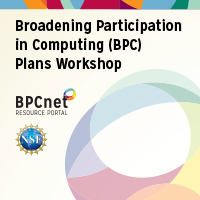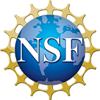
Attend Upcoming Departmental BPC Plan Working Sessions from BPCnet.org
 The National Science Foundation (NSF) Directorate of Computer and Information Sciences and Engineering (CISE) announced an updated Core Programs solicitation (NSF 21-616) with new guidelines for submitting Project Broadening Participation in Computing (BPC) Plans. BPCnet.org has a full announcement about these changes published here.
The National Science Foundation (NSF) Directorate of Computer and Information Sciences and Engineering (CISE) announced an updated Core Programs solicitation (NSF 21-616) with new guidelines for submitting Project Broadening Participation in Computing (BPC) Plans. BPCnet.org has a full announcement about these changes published here.
All Medium project proposals to the Core Programs solicitation (NSF 21-616) are due December 1, 2021 – December 22, 2021. In preparation for the proposal due date, BPCnet.org is hosting two working sessions on October 22nd (2:00 PM – 4:00 PM ET) and November 18th (3:00 PM – 5:00 PM ET).
These working sessions will be tailored toward departments that are seeking to update an existing Departmental BPC Plan or create a new one.
More details, along with an agenda and registration, can be found here on BPCnet.org.
Questions about these Departmental BPC Plan Working Sessions should be directed to bpcinfo@cra.org or through our contact form here.
BPCnet.org Resource Portal is an initiative of the Computing Research Association (CRA) with support from the National Science Foundation (CNS-1830364, CNS-2032231, and CNS-1940460). Subscribe to the BPCnet.org newsletter & bulletin by clicking here.







